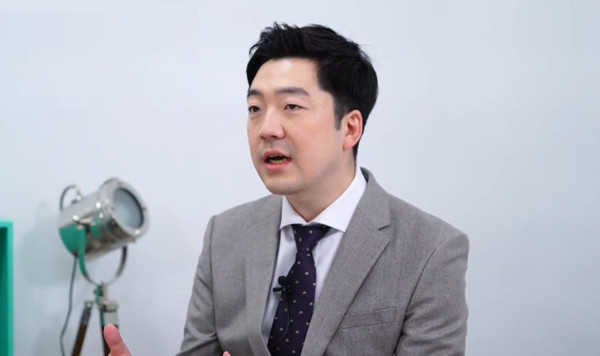The Covid-19 pandemic could end only when its risk becomes weak enough to the level of cold, a health expert said. Thus, Covid-19 vaccination is crucial to advance the ending of the pandemic, he said.
The expert added that the herd immunity could be short-lived, and people should not expect too much from it because a low rate of Covid-19 vaccination could spark viral infections instantly.
Professor Jung Jae-hun at the Department of Preventive Medicine of Gachon University College of Medicine appeared on a YouTube program on Friday to speak on herd immunity.
The government said Korean society could reach herd immunity if 70 percent of the total population get Covid-19 vaccines by November, but herd immunity could easily break in reality, Jung noted. He took an example of a measles outbreak in the U.S. in the wake of an anti-vaccination movement.
Even if a large portion of a population becomes immune to measles, herd immunity cannot protect newborns from measles unless the babies get vaccinations, Jung said. “We can maintain herd immunity with constant maintenance in the long-term.”

Highly vaccinated countries like Israel, the U.S., and the U.K. have shown the possibility of herd immunity, but their achievement was not based solely on vaccination, Jung emphasized.
Jung speculated that a third of the American population must have been infected with Covid-19. As about 50 percent of the U.S. population has received the first dose of the Covid-19 vaccine, about 60-70 percent of the population must have developed immunity against the Covid-19 virus, he said.
In Korea, however, despite the nation’s excellent Covid-19 control and prevention, only a fraction of the population had antibodies, Jung went on to say. In March, 1 percent of the Korean people had antibodies, meaning that Korean people barely became immune to Covid-19 infection.
“Unless 70 percent of the population get Covid-19 vaccines, we cannot talk about taking off masks as the U.S. did,” Jung said.
Korea is no longer a leader in Covid-19 quarantine, and even Taiwan, which used to be lauded for disease control efforts in the past year, is suffering from a high number of confirmed cases now, he went on to say. “Complacency and pride are the strongest enemies,” he said.
Jung said a situation where high-risk groups do not report any Covid-19 related death would be the point where the pandemic ends. “In that case, Covid-19 could become like a cold. Not only to reach herd immunity but to curb mortality, we should get vaccinated,” he said.
Jung also urged the government to do more to encourage people to get Covid-19 vaccines.
The health authorities failed to earn public trust when it started the vaccination program with the AstraZeneca vaccine, and they may find it hard to restore confidence in the AZ vaccine, he said.
The government once said the AZ vaccine did not work on the elderly and then told younger generations not to get it because it was risky. Then, recently, the government said it would drive up the supply of mRNA vaccines and secure sufficient mRNA vaccines.
“No matter what, the government should make people get vaccines. When experts emphasize the safety of Covid-19 vaccines, the government should provide incentives to those inoculated,” Jung said. “The government is acting too passively.”

